
Wong says strategic competition is now pervasive, spanning the economic, diplomatic and military domains. While Labor seeks the elimination of Beijing’s trade restrictions and stabilisation of bilateral relations, Wong warns that China will use “every tool at its disposal” to assert its power, including a military modernisation on a scale “not seen in the world for nearly a century”.
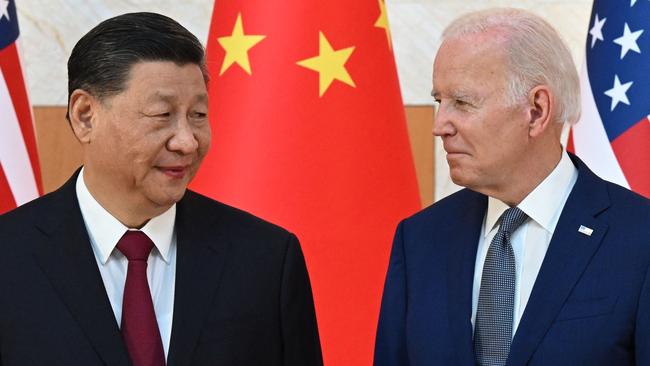
Wong is a gifted diplomat but she knows regional results will be driven by power. She champions a rules-based order pitching to the nations of Southeast Asia. Then she champions a hard-headed balance of power in the region with the US – the “indispensable power” – working to achieve this equilibrium but assisted by allies and regional nations. As a framework it’s fine. But does it work in practice?
This depends upon having a balance of power that succeeds as deterrence and actually prevents war. Yet, as Wong would know, Australia has a strictly marginal impact on that epic question.
Last year, Chinese President Xi Jinping restated his determination to achieve reunification with Taiwan, saying “we will never promise to renounce the use of force”. In the Western Pacific, China has the biggest army, the largest number of naval vessels and the highest number of combat aircraft. Last year US Director of National Intelligence Avril Haines said: “It’s our view that (the Chinese are) working hard to effectively put themselves into a position in which the military is capable of taking Taiwan over our intervention.”
Decoded, that means defeating deterrence. Last year US Secretary of State Antony Blinken said China had changed its approach with a “fundamental decision” that the status quo on Taiwan was no longer acceptable – yet maintenance of the status quo is the foundation of Australia’s foreign policy, as Wong told the press club. Xi is pledged to destroy the status quo that Wong needs to keep.
How long can the status quo last? Only as long as deterrence can prevail. And Beijing is running a multifaceted power strategy – military, economic, political – to nullify deterrence. The aim, following Sun Tzu’s dictum, is to win without fighting. Beijing’s encirclement threats against Taiwan have both a military and psychological import, the message to peoples and leaders being, in Xi’s words, the great reunification cannot be stopped. Don’t try to resist “the wheels of history”. Accept the inevitable.
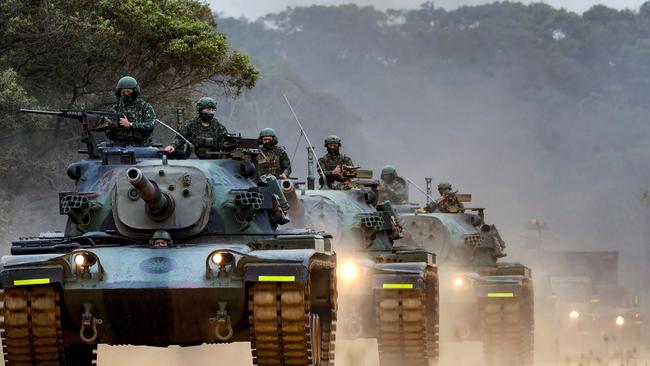
It’s having traction and there’s a long way to run. French President Emmanuel Macron, after his recent visit to China, told the media on his plane: “Is it in our interest to accelerate (a crisis) on Taiwan? No. The worst thing would be to think that we … take our cue from the US agenda.” He asked: “How can we credibly say on Taiwan, ‘watch out, if you do something wrong, we will be there?’ ” Brazilian President Lula da Silva visited Beijing and declared he wanted to work with China to rebalance world geopolitics and criticised sanctions against Huawei.
Strategic analyst and former Australian official Ross Babbage, in his recent book The Next Major War, offers an in-depth look at how a China-US war in the Western Pacific would be fought, the differences in how both nations approach the conflict and the likely outcome (while aware of the hazards in such predictions).
Babbage says there is little public analysis of what a major war would look like or how it would be fought. The likely trigger is Taiwan. On several occasions US President Joe Biden has said the US will defend Taiwan, a departure from strategic ambiguity. Babbage says war in the Indo-Pacific is not inevitable but is more probable now than at any time since World War II. Wong’s speech can only mean she recognises the danger; she calls a war over Taiwan a “catastrophe for all”. Babbage says China is preparing for war, if required. It is already deeply engaged in the struggle.
Running an authoritarian regime, Xi would have control over every area of strategic importance. His conviction, as he said in 2020, is that “autocracies will run the world” because “things are changing so rapidly, democracies require a consensus, and it takes time, and you don’t have the time”. Xi believes the democratic model and the West is in decline – he sees reunification with Taiwan as evidence of China’s destiny and the West’s deterioration and decadence.
Babbage says the Chinese people are being prepared for the contest and being exhorted to “strengthen their resilience” in a “conflict that is likely to be very demanding”. China would operate on a broad canvas resorting to surprise, propaganda, cyber, electronic and conventional warfare with clear goals. Much of China’s military capability is geared to defeating a third-party intervention during a Taiwan contingency, with China’s missile forces able to strike all major US and allied military bases up to 4000 miles (6400km) from China’s coast.

Babbage says: “When Xi Jinping and his colleagues view the US they see a country growing at a modest rate, losing its technological lead in several sectors and becoming handicapped by high levels of domestic tension and polarisation.”
Beijing may prefer to throttle Taiwan by blockade and strangulation, incremental tactics seeking to ensure that no single step justifies US intervention. That would be astute. Any Chinese direct military action, Babbage says, could result in “a Pyrrhic victory” with catastrophic consequences for the Communist Party. Might that deter Xi? Perhaps. But Xi has a different ideological mindset to US political leaders. He has been prepared, so far, to take risky decisions. It would be folly to think he won’t try to achieve reunification.
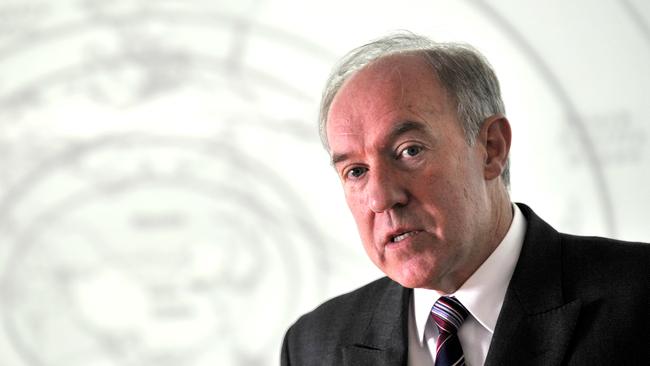
Babbage asks: “Can the US and its allies deter and, if necessary, fight and win a major war against China in the Indo-Pacific? This book concludes that if such a war breaks out before 2030, the American coalition would struggle to prevail and could suffer a devastating defeat.
“There are few signs that the US and its allies are making substantial progress in preparing for this kind of fight. America and its allies and partners are simply not match ready.
“Even if, despite the odds, they manage to gain the upper hand in the first couple of clashes their prospects of winning the match, quickly, decisively and with minimal casualties appear low.”
Babbage says only a thorough military and logistic change of policy in the next three to four years could position the US and its allies “to deter a major war and be certain of avoiding a disastrous defeat”. So what are the prospects of a substantial reawakening of US willpower?
“There are few grounds for optimism,” Babbage concludes. “Unless the current trajectory is markedly changed, the US alliance will likely fail. It will be a case of doing too little too late. The regime in Beijing knows this well. It is watching, pushing ahead with its own preparations.”
Wong backs deterrence and the Taiwan status quo. She’s right to do so, but the question remains: is the US being outflanked?


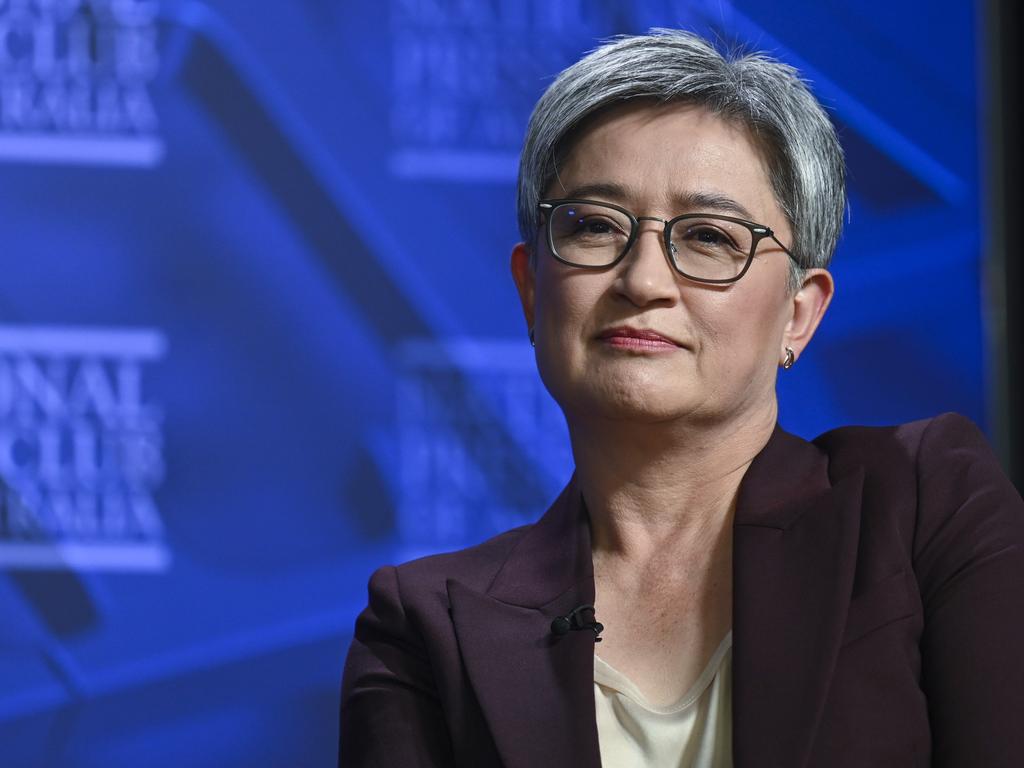

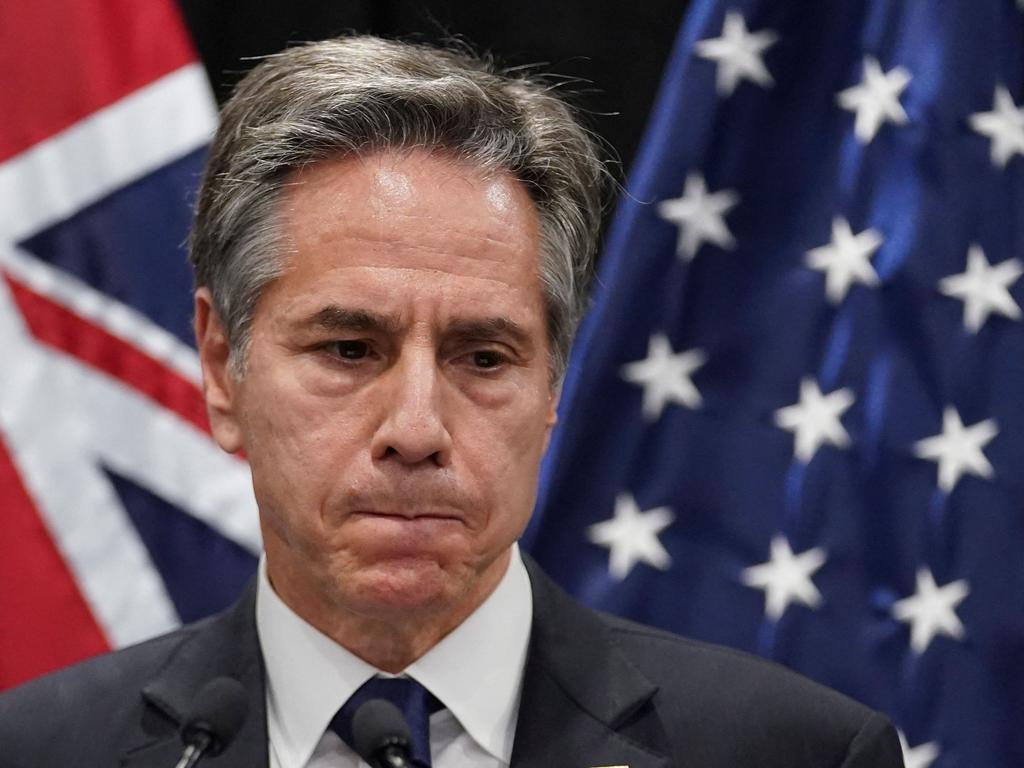



As Labor premiers visit China, our Foreign Minister, Penny Wong, has given a speech at the National Press Club on the theme “how we avert war”, meaning war with China – a deliberate and shocking reminder of the danger the world and Australia faces.